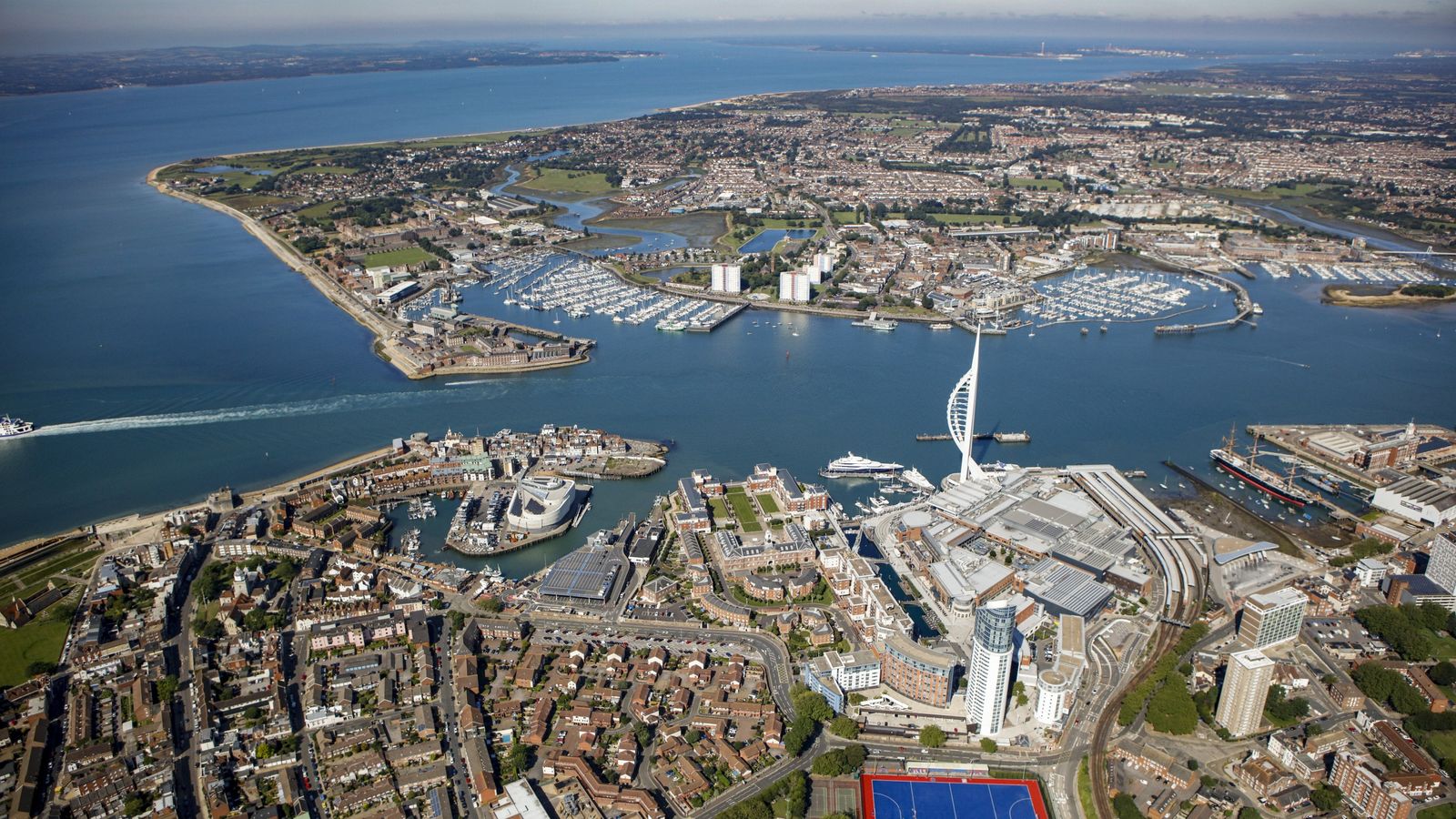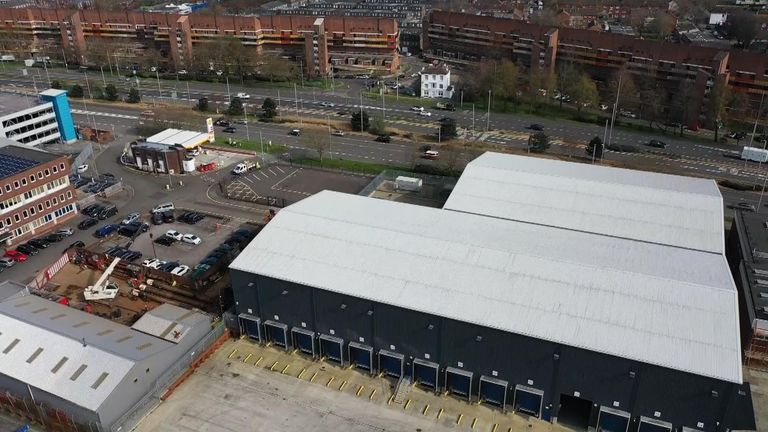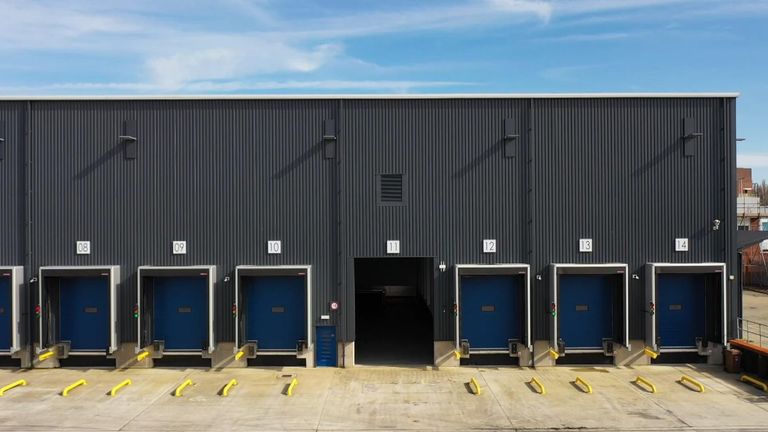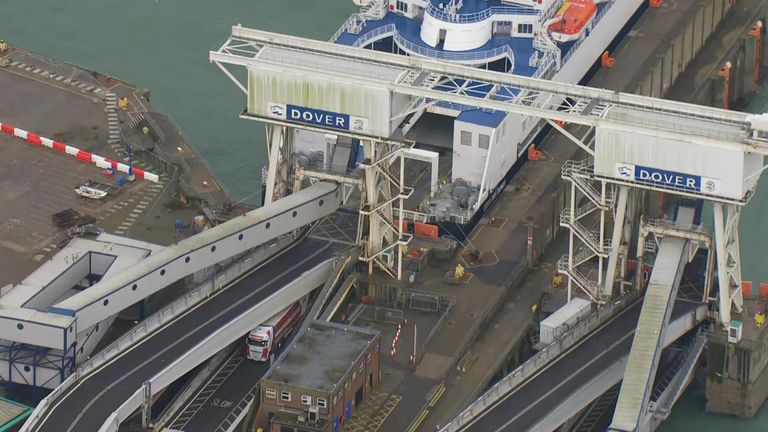A new £24m border control post may have to be demolished because repeated changes to post-Brexit border arrangements have left it commercially unviable.
The facility at Portsmouth International Port is due to begin physical checks on food and plant imports from the EU at the end of next month, but changes to border protocols since it was built mean half of the building will never be used.
Built with a £17m central government grant and £7m from Portsmouth City Council, which owns the port, it is designed to carry out checks on up to 80 truck loads of produce a day. The port now expects to process only four or five daily.
As a consequence, half of the 14 loading bays will never be used, and annual running costs of £800,000 a year will not be covered by the fees charged to importers for carrying out checks.
Portsmouth is not alone, with ports across the country puzzling over how to make the over-sized, over-specified buildings commissioned by the government pay for themselves with far less traffic.
The Department for Environment, Food and Rural Affairs says it spent £200m part-funding new facilities to cope with post-Brexit border controls at 41 ports. It acknowledges that fewer checks will now be required and says ports are free to use spare capacity as they wish.
The problem in Portsmouth is that the facility, built for a very specific purpose inside a secure area, has no obvious commercial use, so the port is considering building a new, smaller facility, and decommissioning or even demolishing the existing building to make space for a commercially viable project.
“This was built to a Defra [Department for Environment, Food and Rural Affairs] specification when the border operating model was announced and it’s been mothballed for two years while the checks were delayed,” Mike Sellers, director of Portsmouth International Port and chairman of the British Ports Association, told Sky News.
“Now the border will be operating with far fewer checks, we are going to struggle to cover the running costs of around £800,000 a year.
“So we have to look to the future and work out what strategically is the best way to minimise the impact to the port and to the council.
“I know it sounds ironic, but that could be building another border control post much smaller than this facility, and looking to find commercial ways to get income either through this facility or to demolish it and use the operational land for something else.”
‘Total and absolute mess’
Port owner Portsmouth City Council meanwhile wants its £7m share of the £24m build cost reimbursed by the government.
“We as a council had to find £7m to help build this facility and now we’re on the fifth change of mind about how much inspection there will be. Half of this building is going to be left empty, idle, unused, and yet it’s costing council taxpayers of Portsmouth a great deal of money,” said councillor Gerald Vernon-Jones, transport lead for the council.
Were the Portsmouth facility to close it could impact the security of UK food imports, as the port is the main alternative route to Dover, providing much-needed resilience to a supply chain heavily reliant on the Short Straits route.
“It’s a total and absolute mess, we have an enormous white elephant here,” Mr Vernon-Jones said.
“If we can’t afford to keep port health people here all day, every day, to do those examinations then everything will have to come through Dover, and that’s enormously risky for this country. If Dover is closed for some reason, industrial action or whatever, then the whole country’s food is at ransom.”
The British Ports Association meanwhile has raised concerns with ministers about the preparedness of the new inspection regime at new border control posts (BCPs), due to be enforced in less than six weeks.
The trade body says ports have still not been told what hours BCPs will be required to open, or how many staff from two state inspection agencies will be required on site.
Crucially, they also do not know how much they will be able to charge importers for inspections because the government has not revealed what price it will levy at the wholly state-owned and run BCP at Sevington in Kent, 20 miles inland from Dover.
Given the dominance of Dover in UK food imports, the so-called common user charge will set the price for the rest of the market, but other ports still have no idea where to set fees.
Defra says it will inform the industry shortly of the fees it has determined following consultation.
The fate of the Portsmouth facility, obsolete before it has even opened, symbolises the delay and indecision around import controls since the Brexit deal came into force in January 2021.
While UK exports to the EU have faced border and customs controls since 1 January 2021, the UK government has delayed similar checks on EU imports five times and changed the control regime.
Read more:
UK ports threaten legal action after spending millions on border control posts
New post-Brexit border controls to cost businesses £330m a year
Post-Brexit checks on goods from EU into UK announced after delay
The original July 2021 deadline for physical checks of plant and animal produce was postponed because the BCPs were not ready, and further delays followed, with the government citing the impact on the food supply chain and the cost of living crisis.
In April 2022 the government announced a wholesale revision of its plans for the border, introducing a new risk-based approach that limits checks to certain high and medium-risk food and plant categories.
This was then delayed again, with a staged introduction finally beginning in January, with medium-risk food and plant imports requiring health certificates signed off by vets or plant health inspectors, followed by physical checks from 30 April.
Even with reduced checks on importsm the government’s own analysis suggests border controls will add £330m a year to the cost of trading with the continent and increase food inflation.
A spokesperson for the Department for Environment, Food and Rural Affairs said: “Our border control posts have sufficient capacity and capability, including for temperature controlled consignments, to handle the volume and type of expected checks and the authorities will be working to minimise disruption as these checks are introduced.”





